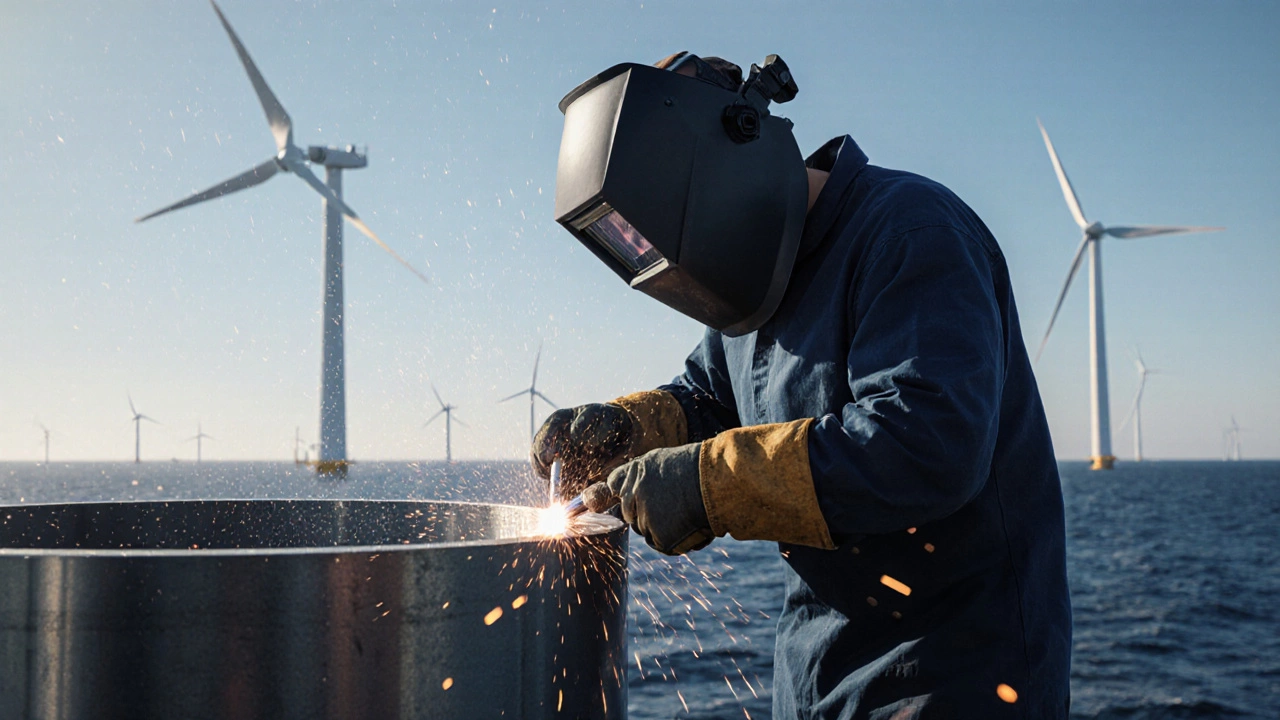Welding Demand: Is It Still a Strong Career Choice in 2025?
When you hear welding demand, the real-world need for skilled welders across manufacturing, construction, and energy sectors. Also known as skilled trades demand, it isn’t just about holding a torch—it’s about keeping bridges, pipelines, ships, and factories running. Forget what you hear about automation killing jobs. The truth? Welding demand isn’t falling—it’s shifting. And the people who know how to adapt are the ones getting hired.
Welding isn’t a single job. It’s a family of skills: MIG, TIG, stick, pipe welding, robotic welding—each with its own market. Hospitals need welders for medical equipment. Oil rigs need pipe welders who can work upside down. Wind farms need structural welders to build turbine bases. And right now, over 500,000 welding jobs in the U.S. and UK are going unfilled because there aren’t enough trained workers. The average welder doesn’t need a four-year degree. They need hands-on training, a good work ethic, and the right certification. welding apprenticeship, a paid on-the-job training path that combines classroom learning with real projects under certified mentors. Also known as trade apprenticeship, it’s how most skilled welders start—and how they earn while they learn.
Automation is changing how welding is done, but it’s not replacing welders—it’s changing what they do. Robots do the repetitive stuff. Humans do the setup, inspection, repair, and complex joints that machines can’t handle. That’s why employers are paying more for welders who can read blueprints, troubleshoot equipment, and work in tight spaces. The highest-paid welders aren’t just strong—they’re smart, adaptable, and certified. skilled trades, hands-on careers like welding, plumbing, and electrical work that require technical training but not a college degree. Also known as blue-collar trades, they’re the backbone of infrastructure and one of the few career paths still offering stable pay without student debt.
You don’t need to be a genius to weld. You need to show up, pay attention, and practice. The best welders aren’t the ones with the fanciest gear—they’re the ones who show up early, ask questions, and fix mistakes before they become problems. And right now, every industry that builds or repairs metal is looking for them.
What you’ll find below are real guides that cut through the noise. We’ve pulled together articles that answer the hard questions: Is welding a dying job? How much do welders actually earn? Where are the best opportunities? How do you get started without going broke? Whether you’re 17 or 37, whether you’ve never held a welder before or you’ve been tinkering in your garage for years—there’s something here that’ll help you move forward.




